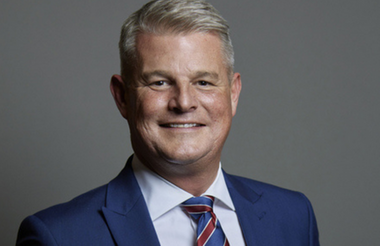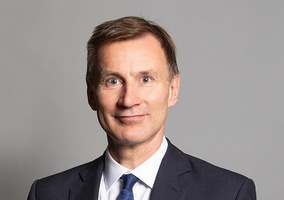Civil society minister Stuart Andrew has defended charities' right to campaign after a fellow Conservative MP accused many organisations of “straying into the political arena”.
At a Westminster Hall debate in the House of Commons yesterday, Craig Mackinlay said some charities that receive statutory funding “attack the government” with their political campaigning and said this was particularly true of organisations that work with refugees.
The MP called the debate to question whether “the charitable tag, with its income and benefits, is being stretched beyond any credibility”.
Mackinlay said: “Too many charities often financed with vast government, that is, taxpayer-supported - grants that run into multiple billions on an annual basis are straying into the political arena.”
In response, Andrew said that charities can engage in political activity when it is relevant to their purpose.
Meanwhile, NCVO said it was “frustrated by the repeated claim that charities shouldn't speak out”.
Refugee and immigration charities often ‘attack’ the government
Mackinlay criticised Refugee Action and the British Refugee Council, which received £10m in government grants between them the last financial year, as they are the “self-same charities and many more, who will put up commentators to attack the government”.
He gave the example of refugee charities taking the government to court on migration issues, particularly the Rwanda policy.
“I have no issue at all with whichever person company or entity wishes to take the government to court,” he clarified.
“But the question for the taxpayer is should such action be under the auspices of a charitable organisation whereby the donors receive tax relief, or indeed where the taxpayer itself is in the funding chain?”
Charity campaigning hints ‘that a vote should not be to the government in power’
Mackinlay, who is a member of the speaker’s committee on the Electoral Commission, said the campaigning of some charities suggests that its followers should not vote for the government in power.
“The activities of many of these charities are by negative influence or influence, hinting that a vote should not be for the government in power. Now, I think there is an increasing case for the Electoral Commission to look more closely at the activities and pronouncements of many of these charities, not just on the issue of asylum and immigration but a wider field where there is obvious straying into politics. And I'm sorry that this would have to apply to those charities that many of us would deem very, very good.”
He criticised the Child Poverty Action Group, which he said is a very worthy organisation but that the government is often at the receiving end of its “very political campaigns”. He said some emails he received from them are “purely political campaigning”.
Charities ‘bite the hand of the government that is feeding it’
Along a similar vein, he criticised some charitable institutions in his constituency of South Thanet in Kent.
“Bizarrely, these institutions are willing to bite the hand of the government which is feeding it and supporting.”
Andrew responded that the transparency of charity funding “forms a central tenet in enhancing public trust in charities” and highlighted the regulatory framework in which charities operate.
He explained that the transparency of charity funds is essential and acknowledged the “huge contribution that charities make to the lives of individuals and communities up and down our country”.
His own background in the charity makes him “very proud” he said.
“Charities are such an important part of society and I share the wish of my honourable friend for them to be proactively transparent in how they use their money.”
He said that there are a small number of cases where this does not occur, in which cases the Charity Commission has the powers to intervene - but he pointed out that it is a small regulator with limited capacity and funding.
Andrew stated that charities must only fund projects that further their charitable purposes and referred to recent guidance made by the chair of the Charity Commission, Orlando Fraser, on political campaigning.
Andrew: ‘Campaigning can be a legitimate way for charities to spend their money’
Andrew continued: “I am aware that members have expressed concerns about the campaigning activities of certain charities. It is important, I think, to stress that non-party political campaigning can be a legitimate way for charities to spend their resources so long as they are within the charity law.
“The law is clear that to be a charity, an organisation must exist only for charitable purposes. A political purpose is not a charitable purpose. And therefore any organisation that has political purposes cannot by degree be a charity. Charities can, however, engage in political activity that is actively intended to change or influence decisions taken by the government where it helps deliver that purpose of the charity.”
He stated that some charity campaigning has improved public policy. He gave the example of the Royal Society for the Prevention of Accidents (RoSPCA), whose campaigning brought about legislation to wear seatbelts.
“But what has changed in recent years is the debates on some issues have become polarised or divisive”, he stated.
While he did not respond to Mackinlay’s specific examples, Andrew assured him he would look into them and raise the MP's concerns with the chair of the Charity Commission in his next meeting with him.
He concluded: “It is clear from today's debate that we all share the same ambition to ensure that charities continue to be supported through effective regulation.”
NCVO: Government funding does not buy charities silence
Alex Farrow, director of influencing and engagement at NCVO, responded: “We’re tired and frustrated by the repeated claim that charities shouldn't speak out on issues, even when those issues are core to their charitable purpose. Charities have a responsibility to do the very best for the communities they serve, and that must include campaigning, speaking out for and against policies, and holding decision-makers to account.
“Alongside other funding sources, many charities receive government funding to deliver vital services. This money buys experience, expertise, and helps build stronger communities. It doesn’t buy silence. Politicians and decision-makers should welcome charities speaking honestly about the challenges and opportunities facing society.
“Charities are well regulated and are rightly bound by a robust legal framework. Their accounts, leadership, and activities are fully transparent. For as long as it takes, we’ll keep explaining why it’s important to rebut any attempts to gag charities or mischaracterise the vital role they play in society.”
Related articles












